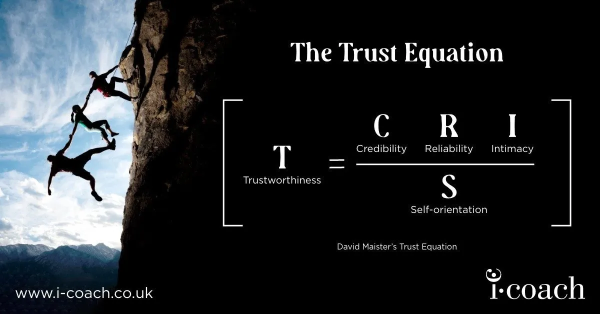
The skills you need to lead post-pandemic
It’s likely we’ll move to a ‘hybrid model’. Some colleagues will continue to work from home while others might come into the office on a schedule which doesn’t follow the traditional Monday-Friday 9-5.
The result of all this is that the role of managers and leaders will continue to evolve.
In my earlier blog post It's time to let go I explain how the pace of change over the last few decades has required something different of managers and leaders. The focus should be on creating an environment for others to learn and perform rather than being an expert and knowing all the answers.
In this post, I want to look at the new leadership profile and explore one vital element of leadership in post-pandemic world: connection — cognitive, emotional and somatic.
The dot-connector
Increasingly, every interaction between colleagues needs to be planned and managed. No longer can you rely on colleagues over hearing a conversation or taking the opportunity to bump into someone to connect, collaborate or compare notes.
Those spontaneous and ad hoc activities that helped enable individuals and teams to self-organise and learn through osmosis, are, unfortunately almost a thing of the past.
Leaders and managers who have greater sight of the ‘whole’ will play an increasingly bigger role in consciously ‘connecting the dots’ across tasks for individuals and teams. Work tasks today increasingly rely on collaborative working, the complexity of tasks requires insight from and connection to other areas of work and expertise to unlock issues, release value but our ability to spot things and interact with others to make these connections is harder when we have fewer spontaneous interactions.
Leaders will need to make more time to support their teams reflect, connect the dots and facilitate introductions to individuals or teams where required. The skills that enable us to build strong trusting relationships and meaningful engagement are increasingly vital after such an isolating and life-changing year.
The glue
Now, you’re not just the person leading the team from the front, you’re the glue that holds the whole system together.
I’ve worked with the armed forces for years. In the military, leaders instinctively take responsibility for the whole person which includes their family system. Many have grown up through the ranks with colleagues, have lived in communities with each other’s families and spent social time with each other. This awareness impacts their leadership approach as they are more aware of their team’s responsibilities outside of their work role.
You too might feel more responsibility towards your team member’s broader system now you have more sight of their world outside the office – the challenge of working on a kitchen table, the isolation of living and working along away from friends and family.
Leaders now have a much bigger role to play in their team’s support structure, their mental health and wellbeing. They might have to help individuals manage the tension that comes from juggling work and school drop-offs, or poor technology – the things you never thought you’d get involved in.
The shepherd
It really is important that no one is left behind. Leaders will need to continue to build their repertoire to support a variety of personalities and styles and allow individuals to feel heard, seen and valued.
For example, after a long time out of the office, extroverted types are likely to be finding it difficult to keep their energy levels up – they miss the opportunity to chat informally and in face-to-face meetings as talking helps them to formulate their ideas. An online brainstorm or planned meeting doesn’t quite elicit the same spark or generate the same spontaneity. Leaders must work closely with their team to help them notice their individual preferences and build ways of working and opportunities that deliver task while managing their personal needs to sustain energy and confidence.
Another example is introverted types who love working from home, having more control over when they are exposed to stimulation or engagement with others are likely to have had a different experience of the last year, may be feeling more energised and dreading the return to the office. However they probably hated networking or initiating conversations with colleagues pre-pandemic and in the current world find reaching out cold to develop new relationships even harder now.
In the past an impromptu walk across the office would provide an opportunity to be introduced to someone who would be a useful contact or there were meetings where the individual didn’t have to be the initiator. The leader now must support them by facilitating access to the conversations they need and to build relationships.
For leaders being the dot connector, the glue and the shepherd is likely to require building or flexing a new set of muscles. Those we call a coaching mindset. The result, however, will be a more motivated and inspired group of people.
So, how does a coaching mindset help?
A coaching mindset builds trust

You might’ve heard of the trust equation. In post pandemic times, the intimacy part of the equation is a key part of connection. You may be credible, reliable and humble but building a sense of intimacy is vital.
This requires you to be yourself, to be honest about your strengths and values. It’s about being clear in your conversations and consistent in your actions. This forms a part of the coaching mindset, which i-coach supports people to achieve.
It means knowing how much to disclose of yourself, how to create a safe space for others to share with you what is meaningful for them, their hopes, dreams and anxieties.
Managers and leaders who act in alignment with what they say build a stronger sense of trust. The conversations which are facilitated through coaching can help to uncover someone's values and authentic self and offers tailored support and tools to help them bring their whole selves to their responsibilities.
A coaching mindset builds connection
It is essential that leaders and managers know how to facilitate effective partnerships built on constructive and proactive conversations whether that’s in person or online.
Coaching can give you the tools to build connections, to notice moods and personalities. A coaching mindset can help foster this in others.
In an age where mental health and wellbeing, and diversity and inclusion are being taken more seriously than ever before we come to the realisation that productivity depends on a workforce that feels supported and valued.
Learn more about how acquiring coaching skills can equip you to have inclusive conversations which enable true connection.
A coaching mindset helps to establish meaning
If there’s one thing we’ve learned about life over the past year, it’s that it really is too short. People need more meaning and purpose in their working life.
People’s values have changed and work has to be more meaningful.
What does this mean for the manager? It means a clear articulation of an individual’s purpose, but more than that, it means the manager can spot an individual's talents and interests and know how to hold a conversation to maintain meaning and motivation.
A coaching mindset is geared for leaders to provide an environment in which challenging questions can be asked in a spirit of enquiry, where people are supported to come to realisations themselves.
If you would like to learn more about our Coaching Essentials programme for managers and leaders or how adopting a coaching mindset can improve your leadership and your team’s productivity, do get in touch.
Related Articles

